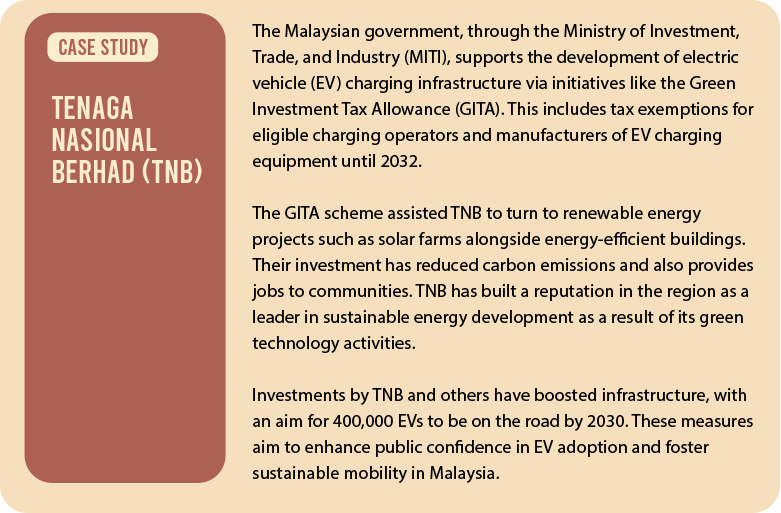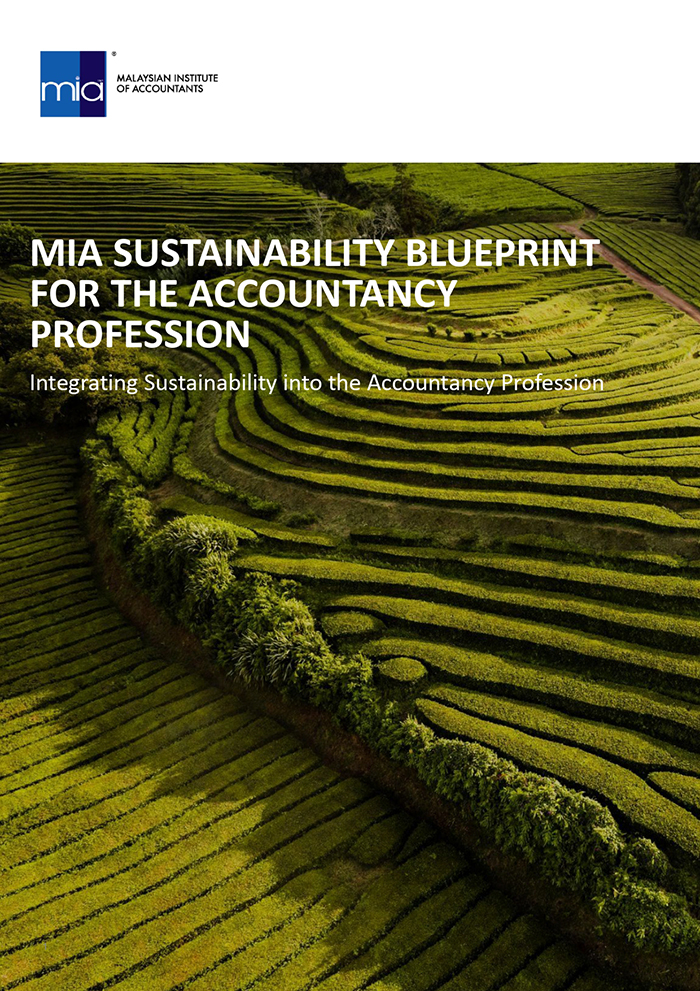By Sustainability, Digital Economy and Reporting Team
Sustainable development presents an opportunity for Malaysia to demonstrate leadership in balancing economic growth with environmental preservation. With its rich ecological diversity and dynamic population, the country is well-positioned to pioneer innovative solutions that foster economic progress while safeguarding natural resources. By aligning fiscal policies (through implementing tax initiatives) with sustainable objectives, Malaysia can preserve its environment, promote the responsible use of resources, and elevate the quality of life for its citizens.
Importance of Tax Measures in Environmental Sustainability Practices
Tax regulations impact consumers’ choices, business practices and even ecology protection. If these measures are undertaken with great care, they can work as beneficial measures towards more sustainable lifestyles. The Malaysian government has put in place several tax measures to enhance environmental sustainability, reduce carbon emissions, and improve the people’s well-being.
Such measures include the following:
Green Income Tax Exemption (GITE) – giving tax reliefs to green technology service providers.
Green Investment Tax Allowance (GITA) – aiding in sourcing investment by companies for energy-efficient projects that focus on renewable sources of energy

Malaysia’s Path to Sustainable Energy: Carbon Pricing and Policy Innovations
Malaysia addresses the challenges and opportunities of sustainable energy practice with emphasis on accessibility, environmental responsibility, and fiscal efficiency. As the world focuses on carbon pricing and energy reforms, Malaysia is at a crossroads, combining targeted subsidies, potential income, and innovative market mechanisms.¹
Malaysia’s energy transition balances affordability, sustainability, and equity through targeted policies. Liquefied Petroleum Gas (LPG) subsidies support low-income households while promoting cleaner energy access. Carbon pricing and emissions trading schemes (ETS) aim to reduce emissions and generate revenue for renewable energy initiatives. These are as follows:
Subsidies for LPG: A Balancing Act of Accessibility and Sustainability
Malaysia is one of the countries that provide subsidies for LPG to low-income households. Such policy reveals the dual commitment of the government: ensuring energy affordability as well as cautious and slow transition toward cleaner sources of energy. By making a cleaner option available for household cooking, subsidies support household welfare without compromising long-term sustainability goals.
Carbon Pricing: Unlocking Revenue Potential
The ability of Malaysia to phase out its fossil fuel subsidies and replace them with robust carbon pricing mechanisms is a critical window of opportunity. Estimates vary, but it was suggested that effective carbon pricing could yield net revenues equivalent to between 3 – 6% of the national GDP. These revenues can be used as the financial backbone of renewable energy efforts toward powering Malaysia’s economic growth while responding to climate concerns.
ETS: A Step Towards Market-Based Solutions
Malaysia’s plans to roll out an ETS² are a major step toward a market-based approach to reduce emissions. Although a voluntary carbon market already exists, transitioning to a mandatory ETS will align Malaysia with global trends. Emissions would be capped and allowed to be traded; thus, industries would have an incentive to adopt cleaner practices.
Earmarking Revenues for a Just Transition
The strategic use of revenue generated from carbon pricing is critical for public support. Earmarking the funds for renewable energy projects or subsidies to vulnerable groups would make carbon pricing policy more acceptable. This underlines the question of equity in Malaysia’s transition to sustainable energy where there is no single group that will be disproportionately hurt.
Conclusion
The interaction of policy design and economic incentives with public buy-in will be critical as these initiatives are advanced by Malaysia. By fully utilising carbon pricing, reducing subsidies, and introducing elements of equity, Malaysia can undergird its leadership in the global transition towards sustainable energy.
The Malaysian Institute of Accountants (MIA) continues to advocate on sustainability matters and support policymakers in providing constructive advice when developing environmental tax policies, particularly carbon taxes. Engagement with tax authorities on the aforementioned matters will be part of the MIA Sustainability Roadmap agenda which will operationalise the MIA Sustainability Blueprint for the Accountancy Profession.
¹ https://www.oecd.org/en/publications/pricing-greenhouse-gas-emissions-2024_b44c74e6-en.html
² https://icapcarbonaction.com/en/ets/malaysia#:~:text=ETS%20Description, commitments%20and%20net%20zero%20aspirations








